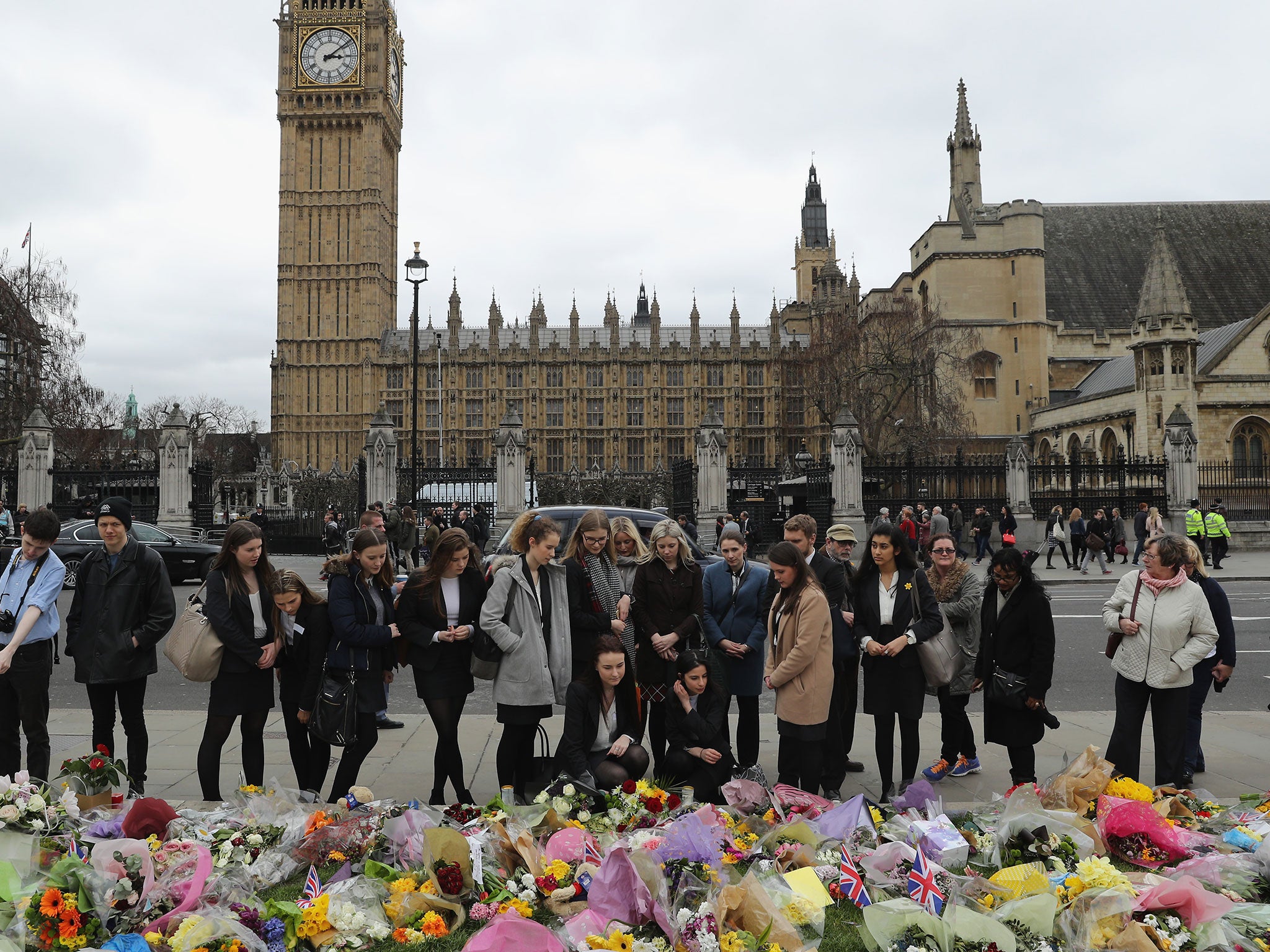Westminster attack inquests - latest updates: Coroner gives conclusions on how victims of terror attacker Khalid Masood died

The inquests into the deaths of the victims of the Westminster attack are due to conclude.
Chief coroner Mark Lucraft QC is due to give his conclusions at the Old Bailey on the deaths of four civilians and police officer Keith Palmer, who were murdered by terrorist Khalid Masood.
He will consider whether factors including security at the Houses of Parliament, the lack of barriers on Westminster Bridge, police body armour and security service investigations into Masood played a role in their deaths.
Please allow a moment for the live blog to load.
On Tuesday the court heard closing submissions, with Jonathan Hough QC, for the coroner, saying the inquests should conclude all five victims were unlawfully killed.
He said: “Each was murdered in a terrorist atrocity which was no less brutal for its lack of sophistication.”
Masood, 52, drove into pedestrians on Westminster Bridge on March 22 last year, killing American tourist Kurt Cochran, 54, retired window cleaner Leslie Rhodes, 75, Aysha Frade, 44, and Romanian tourist Andreea Cristea, 31.
He then stormed through gates near the Houses of Parliament and fatally stabbed Pc Palmer with two knives.
In his closing argument, Gareth Patterson QC, for families of victims on the bridge, urged the coroner to make a report on the circumstances of the case to “protect the public”.
On the role of MI5, whose knowledge of Masood has been heavily scrutinised, he said: “We do think there is room for improvement in terms of decision-making.”
He suggested security services should look again at when to investigate suspects and when to stop, and to take account of violent backgrounds.
Mr Patterson also called for the Government to “try again” with tightening rules for hiring cars.
Dominic Adamson, representing PC Palmer's widow Michelle, said that there was “a systematic failure” in protecting unarmed officers on guard at the Palace of Westminster.
He told the coroner: “In my submission it is very clear that you can be satisfied that as a result of those failures the consequences for Pc Palmer were that there was a substantial loss of the opportunities for him to be saved.”
No firearms officer had been near Carriage Gates, where Pc Palmer was on duty, for nearly an hour before Masood's attack.
Susannah Stevens, representing the officer's family, said: “If there had been authorised firearms officers present at that time, in our submission, on the balance of probabilities they would have been able to prevent a loss of an opportunity of saving Pc Palmer's life.
”Or to put it another way, on the balance of probabilities, their absence contributed to Pc Palmer's death.“
The court will hear further closing submissions in the morning, before the coroner begins giving his conclusions.
Inspector Rose understood Sector 3 patrol to focus on Carriage Gates, not including the collonades, and did not expect them to be static at any point
He expected any change to be emailed to officers and for them to check the ADAM system, and accepted that a laminated map viewed by officers included the whole New Palace Yard area
In January 2015, the threat level increased specifically in relation to police officers.
Postings were changed but a series of emails showed rising complaints about officers not being in the corect positions.
Judge Lucraft says the hostile vehicle mitigation barriers that already existed around parliament were "there to protect the building, not pedestrians"
He recounted evidence from police and officials that they had not known of a terrorist threat to Westminster Bridge specifically, or bridges generally
Barriers were installed across London bridges following the London Bridge attack in June 2017
Judge Lucraft says parliament is guarded by a combination of the Metropolitan Police and parliamentary security staff.
All armed police are the Met's responsibility, as are any major security incidents
Eric Hepburn, the Parliamentary Security Director, said no one had raised concern about crowd control barriers or the opening and closing of gates with him.
On the day of the attack there were three security officers in New Palace Yard, wearing body armour and carrying radios.
Chief Superintendent Dawn Morris said that prior to March 2017, training and an operational document on terrorism was based on the Paris attacks and the prospect of a "marauding" attack
One training exercise was carried out on 19 March 2017 to test capabilities to respond to a threat in London. Other exercises were carried out involving different agencies and scenarios
The Westminster attack was responded to an "Operation Plato" declaration, she said
Judge Lucraft is now addressing the evidence heard on attacker Khalid Masood


